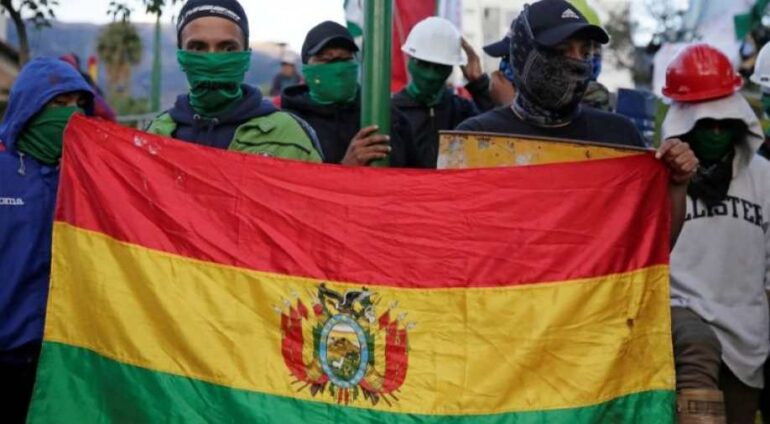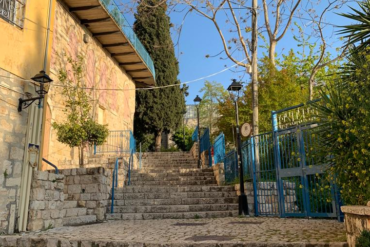Bolivian President Evo Morales announced his resignation on Sunday after weeks of protests motivated by allegations of election fraud.
Morales held the nation’s highest office for the past 14 years and was able to run for another term in the nation’s October 20 elections as a result of the 2017 Constitutional Court decision to lift presidential term limits.
Allegations of fraud began to surface after the election authorities stopped announcing results for a 24 hour period, during which time Morales’s numbers surpassed the ten-point lead mandated by Bolivian law to avoid a runoff election.
Once the results were contested, huge waves of protests erupted throughout the country. The people rebelled against the reactionary old state, which has only served to deepen the semi-colonial character of Bolivia over the past 14 years, increasing the exploitation of the workers and peasantry.
The protests were then intensified by far-right movements linked both to the United States and to the comprador faction of the bourgeoisie. As the protests came to a head, the police and military came out in opposition to Morales and demanded his resignation.
For all his faults (revisionism and opportunism top the list), Morales was Bolivia’s first indigenous president, which is significant due to the fact that Bolivia is a majority indigenous nation that has been ruled by a white European elite since the days of the conquistadors.
To his credit, Morales did managed while in office to reduce poverty by 42% and extreme poverty by 60%, cut unemployment in half and institute several impressive public works programs. The exiled leader saw himself as part of a decolonizing wave sweeping across Latin America and drew Washington’s ire for nationalizing his country’s key resources and spending the proceeds on education, health and affordable food for the Bolivian people.
Morales fled to Mexico on Tuesday, seeking asylum under the protection of President Andrés Manuel López Obrador. The country’s political crisis then took a dramatic when second tier Senator Jeanine Añez Chavez claimed the presidency. Morales urged his supporters in the legislature, who hold a two-thirds majority, to continue fighting on his behalf.
The events of the past month in Bolivia are representative of something taking place throughout Latin America. There is a deepening of imperialism and, by extension, a crisis of bureaucratic capitalism. As the price of raw materials drop, and the economic “boom” that semi-colonial countries experienced from exporting these materials dwindles, the sham of what the Bolivian people were sold as “development” becomes increasingly clear.
Governments aligned with the bureaucrat bourgeoisie exemplified by Morales are unable to deliver on the reforms they promised the people and are increasingly compelled by US imperialism and domestic capitalists to increase exploitation and institute austerity measures.
While Morales has sought asylum in Mexico, it’s the Bolivian people who will suffer the most under the right wing coup. Whether they live under a fascist regime ruled by Jeanine Añez Chavez and Luis Fernando Camacho or under a military junta, it’s the masses who will be subjected to the whims of US imperialism, which is sure to bring greater exploitation and misery to Bolivia.
It’s important to recognize how right wing coups work and become operational on the basis of contradictions in an existing society (which Washington readily exploits to further its dominance in the region).
The politics that gave rise to this military coup provide further argument for the destruction of the old state and the necessity of the dictatorship of the proletariat. While Morales’s revisionism and opportunism failed to deliver what the people of Bolivia truly need, the far-right took advantage by mobilizing the most reactionary segments of society in an attempt to impose a fascist military dictatorship.
At the end of the day, we shouldn’t side with Morales or with the coup that deposed him but should stand in solidarity with the people of Bolivia. We should obviously condemn Washington’s actions in Bolivia, as well as the coup government on the basis of its subservience to imperialism. The Bolivian masses are correct to rebel against the coup and their struggles must not be swept under the rug of the Morales regime’s ineptitude.





